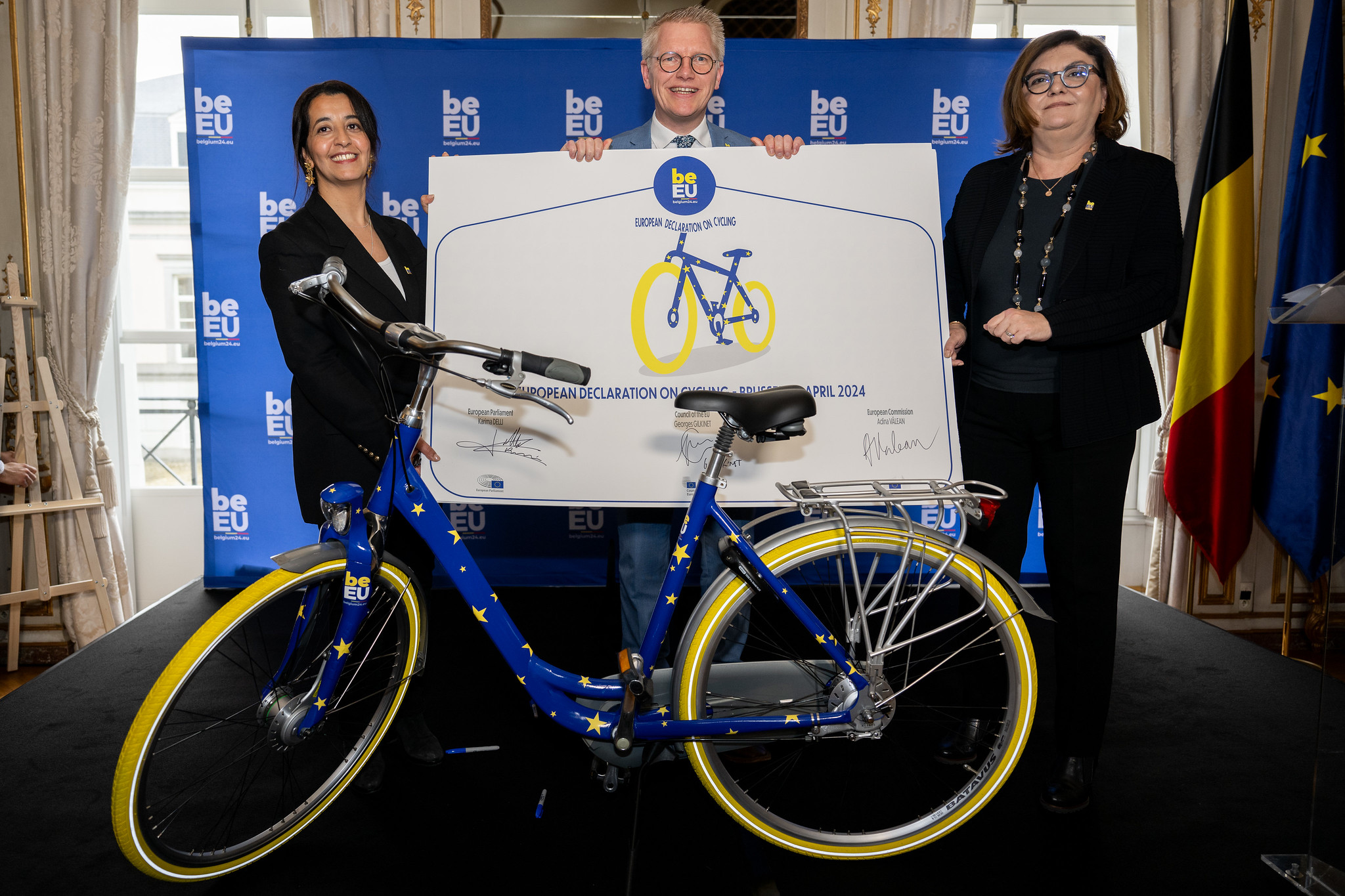
EU recognizes cycling as key element in its mobility strategy

The EU, with Belgian Minister Gilkinet in the middle, has adopted the “European Declaration on the Use of Bicycles”, a declaration on to encourage cycling, seen as a link in its climate policy/beEU
The European Union wants to work on improving cycling infrastructure among its member states and wants to make (electric) cycling more attra


Comments
Ready to join the conversation?
You must be an active subscriber to leave a comment.
Subscribe Today